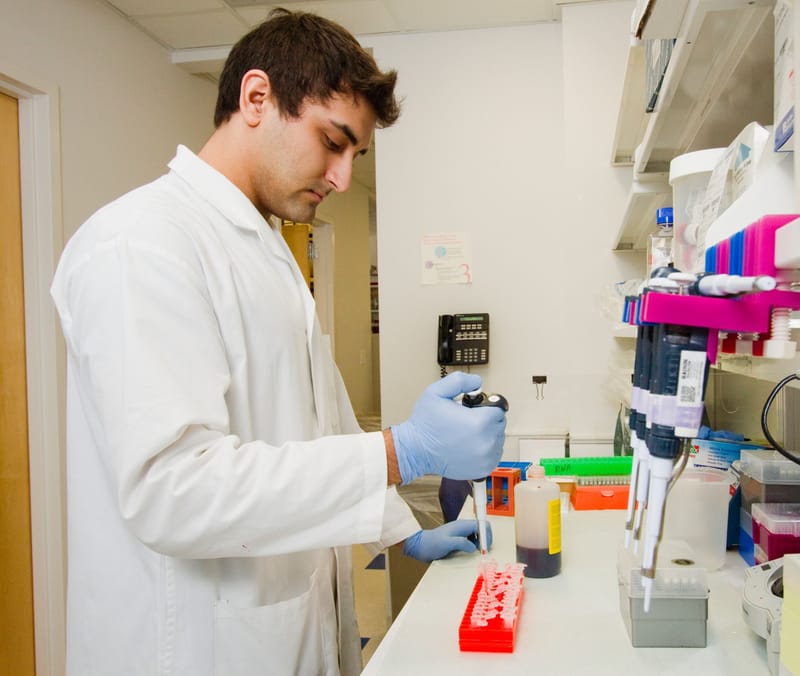PSA- Prostate Cancer Test

Prostate Cancer Test (PSA)
Question 1. What is PSA? Prostate specific antigen (PSA) is an enzyme produced only by the prostate gland. The prostate gland is a doughnut-shaped gland located in a man's pelvis in the small space between the base of the penis and the bladder. The prostate makes the fluid that nourishes sperm and carries sperm during ejaculation. The amount of PSA produced by the prostate gland can be helpful in detecting prostate cancer very early. Question 2. Why is PSA Screening Important? Prostate cancer is of the major killer cancers in men and it has become the most commonly diagnosed cancer among men in the world. It is the second leading cause of cancer deaths of men in the western world. The prostate cancer death rate is especially high among African American men. The risk of prostate cancer increases with age. The amount of PSA produced by the prostate usually increases if you have prostate cancer. Checking for high PSA levels helps health care providers diagnose prostate cancer early. It also is a way to check how well treatment of prostate cancer is working. PSA can be measured with a simple blood test. It is an important test because prostate cancer often has no symptoms in its early stages. Question 3. How is the PSA Test Used? PSA circulates in a man's blood. Normal levels, which increase with age, have been determined. The PSA blood serum test shows whether the amount of PSA in your blood is in the normal range. It is generally recommended that all men age 50 or older should have prostate cancer screenings every year. You should see your doctor for regular check including a digital Rectal Exam (DRE). If you are at increased risk for prostate cancer (for example, if you have a family history of prostate cancer), your health care provider may recommend starting screening earlier than age 50. Question 4. What is the advantage of PSA Testing? The advantages of the PSA test are: It can be done with a simple blood test. It is less expensive than other tests, such as ultrasound scans. It helps detect small cancers that can't be found with a physical exam. If you have prostate cancer, it can be used to help see how well your treatment is working It can be used to look for the return of prostate cancer after treatment. Question 5. What is the disadvantage of PSA Screening? The disadvantages of the PSA test are: It does not always detect prostate cancer. The results of the test are in the normal range in 25% to 45% of men with prostate cancer. Other prostate conditions, namely prostate infection and prostate enlargement (benign prostatic hyperplasia), can increase the PSA level. Because of these limitations to PSA screening, you should discuss having the test with your health care provider. Question 6. What are the signs of prostate cancer? You will not have any complaints in the early stages of disease. You should get yourself tested for PSA level if you are over 50 years old or earlier if you have family history of cancer. Some of the common complaints related to prostate cancer include: Increasing urge to urine but only small amount is passed Urine obstruction or difficulty urinating Constipation Recurrent urine infection Lower back pain Question 7. Can I have ultrasound for screening of prostate cancer? No. Ultrasound scan is not sensitive enough for routine use as screening test. It can only be used for confirming diagnosis when PSA is elevated or DRE is positive. USS, however, is useful for guiding needle biopsy of the lesion and assessing the degree of extension of prostate cancer into bladder and surrounding tissue.
Question 8. What happens if my PSA test is elevated? You should have your results reviewed with your doctor. False elevations can occur with prostate infection (prostatitis), following DRE and in benign prostate enlargement. If cancer is suspected your doctor may referral you to specialist or arrange an USS and biopsy of prostate gland. Question 9. What is the treatment for prostate cancer? You should consult your doctor or specialist for more information on treatment. In general, you will be assessed on individual basis and the type of treatment given will depend on your age, extend of spread of cancer to other organs, and co-existing medical conditions. Often you will be offered combinations surgery and drug treatment. Discuss with your doctor for more information. |


